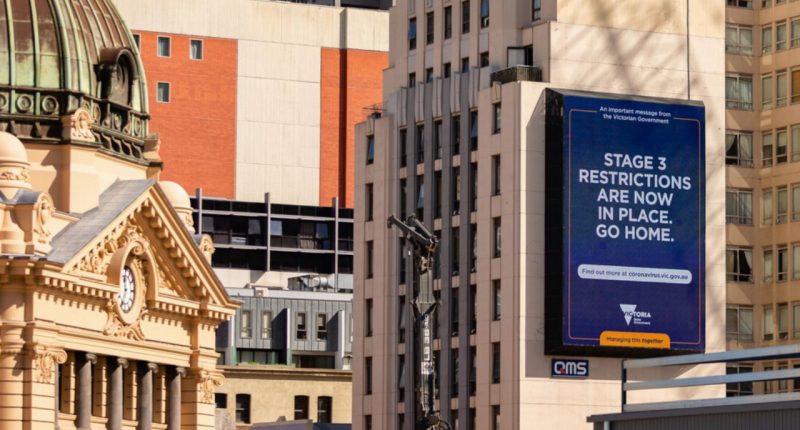- CoreLogic has released a comprehensive overview of housing market performances through lockdowns, which shows only minor setbacks
- Auction results across Sydney and Melbourne have remained resilient in lockdown, although a larger than normal number of auctions are typically withdrawn, postponed or sold prior
- Transaction activity slows markedly through lockdown periods, however a ‘catch up’ in home purchases has been evident as restrictions ease
- Property values have remained resilient through lockdowns, and have seen strong growth as social distancing restrictions eased
- The stability of housing market values is likely subject to extensive government stimulus, a factor which is far less certain going forward
As the delta COVID-19 variant spreads in Australia and vaccination rates remain low, parts of the country have been plunged into lockdowns of varying severity.
Lockdowns typically put a stop to physical home opens and driveway auctions among other restrictions that impact the housing market.
In a new report, CoreLogic looked through the data of the past 15 months to note the trends that have merged from the housing market during lockdowns.
The research delves into several important aspects of the housing market’s lockdown to assist in what to expect in the current and potential lockdowns in the future.
Although a higher-than-normal number of auctions are generally withdrawn, postponed, or sold prior to the auction event, auction outcomes in Sydney and Melbourne have remained robust under lockdown, particularly circuit-breaker lockdowns, according to the report.
The report also noted that a higher portion of properties are sold prior to and after an auction during lockdowns.
During lockdowns, transaction activity slows noticeably, but when restrictions loosen, a ‘catch-up’ in house purchases has emerged, the report found.
However, this was matched with advertised supply, but listing levels have been largely subdued, even as restrictions lift.
Despite the lockdowns and gloomy forecasts at the start of the pandemic, property values have remained robust and have witnessed a considerable increase as social distance regulations have loosened, according to the report.
Housing market value stability is expected to be influenced by significant government stimulus and institutional support for the sector, which is a factor that is considerably less guaranteed in the future, the report noted.
Australian housing market values had a peak to trough decline of just -2.1 per cent through 2020, before surging 12.2 per cent through the first six months of 2021.
CoreLogic head of research for Australia Eliza Owen noted this was due to the unique dynamics of a COVID-induced lockdown.
“It is true that demand takes a hit during lockdowns,” she said.
“There was a lot of uncertainty amid stage two restrictions nationally last year, and sentiment for housing market outcomes plummeted. But supply also declined, because sellers and agents knew it may not be the best time to market property. That helped to balance out the overall effect on prices.”
However, Ms Owen also notes that although the housing market did not crash because of COVID-19, government and institutional responses played a key role in market stability.
“A big part of why the housing market didn’t see further value declines was the enormous income support packages provided to households, the role of JobKeeper in maintaining employment relationships, low mortgage rates and mortgage repayment deferrals,” she said.
“In the event of another extended lockdown, the future of housing demand and supply becomes much less certain if that same government and institutional support is not there.”








